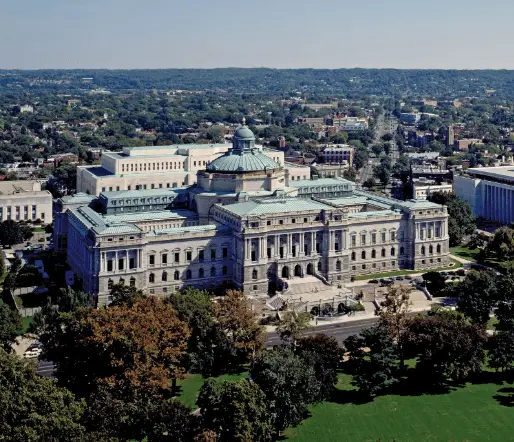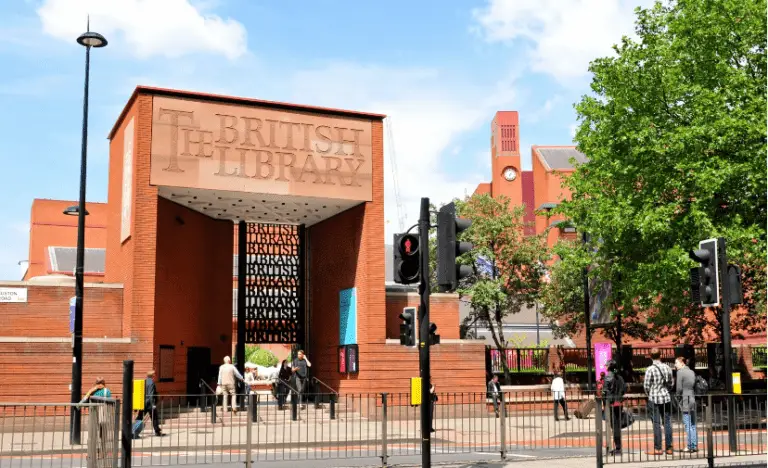Library Of Congress

The Library of Congress is the largest library in the world and serves as the research library of the United States Congress. It was established on April 24, 1800, and is located in Washington, D.C. The Library of Congress plays a crucial role in preserving and providing access to a vast collection of books, manuscripts, maps, photographs, recordings, and other materials.
Here are some key facts and functions of the Library of Congress:
The Library of Congress houses an extensive collection that includes over 170 million items, making it the largest library in the world. Its collection spans a wide range of formats, including books, newspapers, manuscripts, prints, photographs, maps, music, recordings, and more.
The Library of Congress serves as the official depository for copyrighted materials in the United States. Publishers and creators are required to submit copies of their works to the Library for copyright registration and preservation.
While it primarily serves Congress and government agencies, the Library of Congress is also open to researchers and the general public. It offers a wealth of resources for scholarly research, and its Reading Rooms provide access to its collections.
The Library of Congress has a significant online presence, providing digital access to a vast portion of its collection through its website. This includes digitized manuscripts, photographs, historical newspapers, and more.
The Library of Congress plays a vital role in preserving and promoting American cultural heritage. It collects and archives materials that reflect the history, culture, and creativity of the United States.
The Library hosts various events, lectures, exhibitions, and concerts throughout the year, making its resources and collections more accessible to the public.
It provides research services and resources to members of Congress, helping them make informed decisions on legislative matters.
The Library collaborates with libraries and cultural institutions worldwide to promote cultural exchange and share knowledge.
The Library of Congress has $696 million budget and 3000+ staff till date.
The Library of Congress is an important institution in the United States and has a significant impact on research, education, and the preservation of cultural heritage. It symbolizes the nation’s commitment to knowledge, learning, and the free exchange of information.
British Library

The British Library is one of the world’s most renowned and comprehensive research libraries, and it is located in London, United Kingdom. Established in 1973, it was created as an autonomous organization to bring together various national libraries and collections in the United Kingdom. Here are some key facts and functions of the British Library:
The British Library holds one of the largest and most diverse collections of books, manuscripts, maps, newspapers, photographs, sound recordings, and other cultural and historical artifacts. Its collection includes over 170 million items and continues to grow.
Like the Library of Congress in the United States, the British Library has the privilege of legal deposit. This means that it receives a copy of every publication produced in the United Kingdom and Ireland, making it a comprehensive repository of the nation’s published materials.
The British Library provides access to its vast collections for researchers, scholars, and the general public. It offers reading rooms and research services to assist visitors in exploring its resources.
The British Library has undertaken significant digitization efforts, making a substantial portion of its collection available online. This includes digitized manuscripts, books, newspapers, and other materials, providing global access to its holdings.
The library actively preserves and promotes the cultural heritage of the United Kingdom. It holds many significant historical documents, such as the Magna Carta, Gutenberg Bibles, Shakespeare’s First Folio, and extensive manuscript collections.
In addition to its vast general collections, the British Library also has specialized collections, including archives of famous writers and figures, music manuscripts, and rare books.
The British Library hosts exhibitions, lectures, and educational programs to engage the public with its collections and promote literacy and learning.
The library collaborates with libraries and institutions worldwide, participating in cultural exchange programs and supporting international research and scholarship.
The British Library is not just a national library; it is a global center for research and knowledge, playing a pivotal role in preserving the cultural heritage of the United Kingdom and advancing scholarship in various fields. Its iconic building at St Pancras in London is a symbol of the importance of libraries in society.







